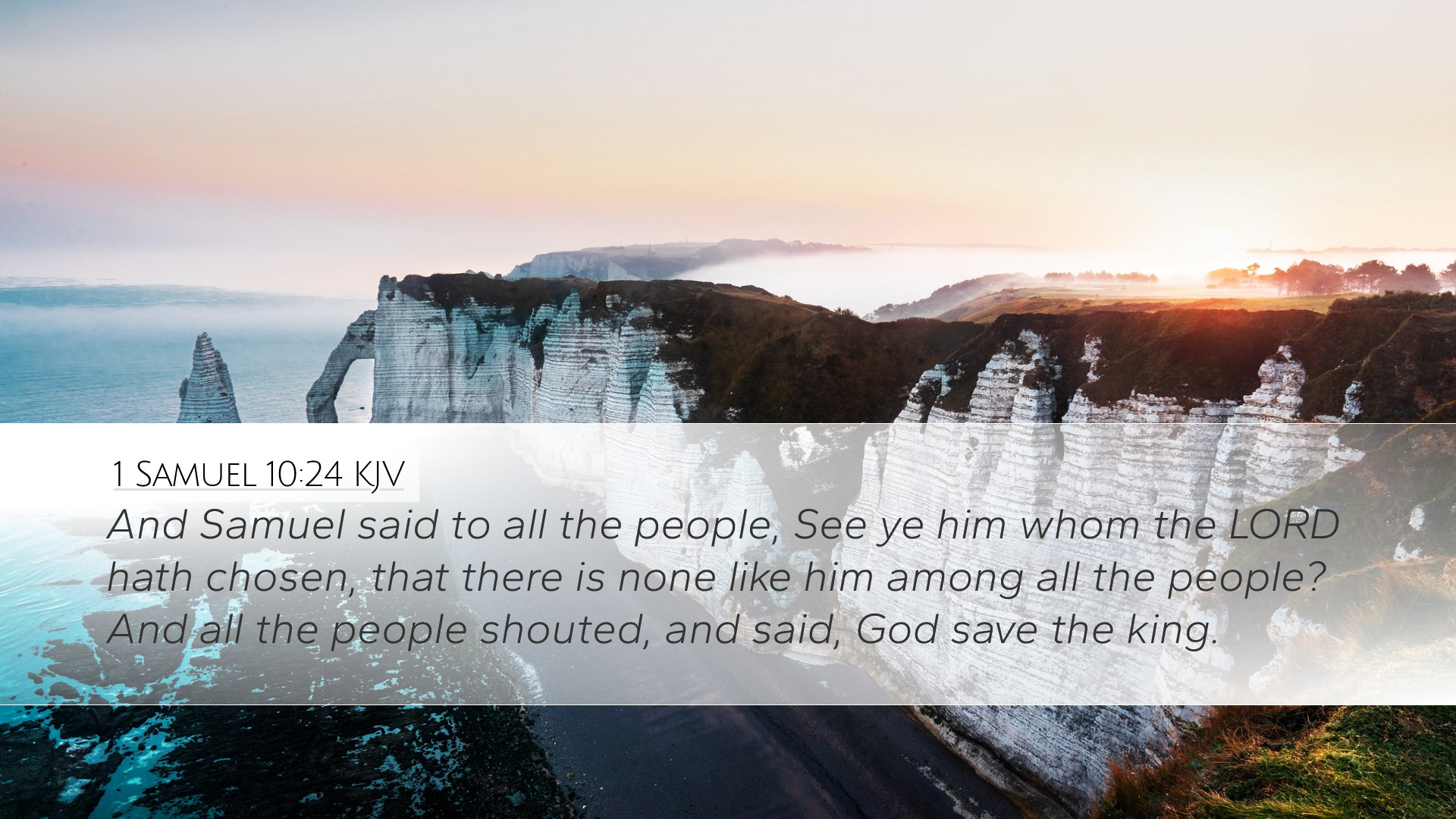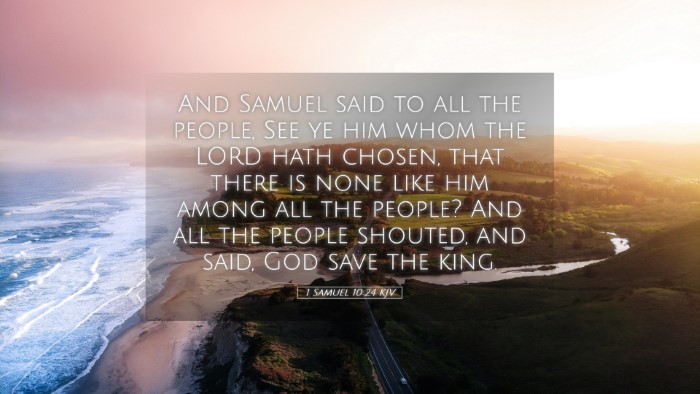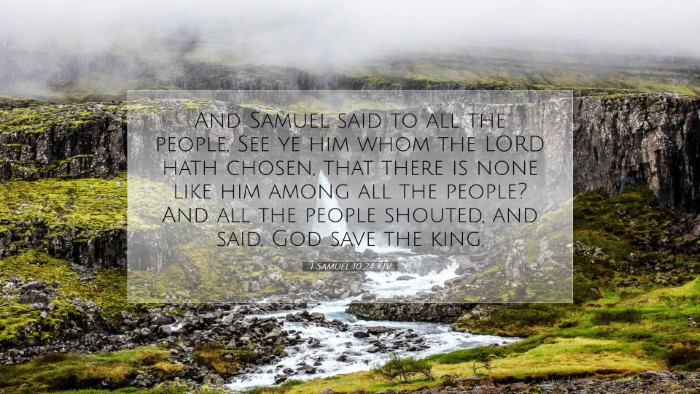Commentary on 1 Samuel 10:24
In 1 Samuel 10:24, we encounter a pivotal moment in Israel's history, as Samuel publicly presents Saul as the chosen king. This verse reads:
"And Samuel said to all the people, 'Do you see him whom the Lord has chosen? There is none like him among all the people.' And all the people shouted, 'Long live the king!'" (1 Samuel 10:24, ESV)
Context and Significance
The setting of this declaration is of great importance, as it marks the transition of Israel from a theocratic system led by judges to a monarchy. Samuel, God's prophet, has been serving as both a leader and a priest, yet the people have clamored for a king. This verse captures the climax of their demands as God answers their request.
Analysis and Insights
In examining the commentary by Matthew Henry, Albert Barnes, and Adam Clarke, several key themes emerge from this momentous occasion.
1. Divine Choice
Samuel's proclamation highlights the divine choice of Saul. Henry notes that by this public recognition, Saul's appointment is framed as a sovereign act of God rather than a human decision. This emphasizes the theological principle that leadership is established by divine will.
- Henry: "The Lord has chosen him, which is a great honor, yet carries great responsibility."
- Barnes: "The people’s choice, however, is ratified by divine approval."
- Clarke: "Saul's physical stature and qualities reflect the expectations of an earthly king."
2. The Role of Leadership
Samuel’s words serve as a reminder to leaders within the church and the community that they have been chosen for a purpose. This implies both privilege and accountability. Henry emphasizes the need for humility in leadership, a theme echoed by Barnes who notes that true leadership must center on servanthood and righteousness.
3. The Response of the People
The acclamation of the people, “Long live the king!” can be viewed from several lenses:
- Response to God’s Choice: The people’s enthusiastic support suggests a unified acceptance of Saul as the leader ordained by God, though it also signals their shift towards worldly governance.
- Celebratory Yet Cautionary: While their shouts signify joy, both Barnes and Clarke caution that the ease of acceptance may foreshadow problems stemming from their rejection of divine leadership.
Theological Implications
The selection of Saul unveils rich theological implications. Firstly, it introduces the dynamic tension between divine sovereignty and human free will. The Israelites’ choice for a king reflects their desire for conformity with surrounding nations, highlighting a recurrent theme in biblical narrative: the struggle of God’s people to remain distinct.
God's Sovereignty and Human Choice
Henry emphasizes that God is sovereign over human affairs, and even when Israel turns toward a king, God's purpose remains prevails. Clarke provides insights into how Israel’s request stems from their unfaithfulness, yet God's mercy allows for their choice, reflecting His desire to guide them through a flawed system until Christ, the true King, arrives.
The Nature of True Kingship
Ultimately, this verse foreshadows a deeper understanding of kingship in the biblical narrative. Saul, despite being chosen by God, ultimately fails to fulfill the role as expected. This leads to the eventual establishment of David as king, demonstrating the inadequacy of a king after the flesh. Barnes articulates this inevitability, suggesting the people learned that adherence to God’s commands is paramount for true leadership.
Practical Applications
For today’s pastors, students, and theologians, this passage presents multiple avenues for application:
- Recognition of God’s Sovereignty: In every facet of leadership, it is essential to acknowledge that God is ultimately in control, leading us to seek His guidance rather than adhering solely to our preferences.
- Servanthood as Leadership: Those in positions of power must remember the call to serve. Echoing the example given by Christ, leaders should exemplify humility and service.
- Engaging the Community’s Voice: While the people had the right to express a desire for a king, their desire must align with God’s will, highlighting the importance of prayer and discernment in decision-making.
Conclusion
1 Samuel 10:24 acts as a significant landmark in the narrative of Israel's history, shedding light on God's intricate plan for His people amidst their desire for kingship. The reflections provided by Matthew Henry, Albert Barnes, and Adam Clarke serve not only as commentary but also as a guide for how this passage resonates with issues of leadership, divine choice, and communal responsibility today.


